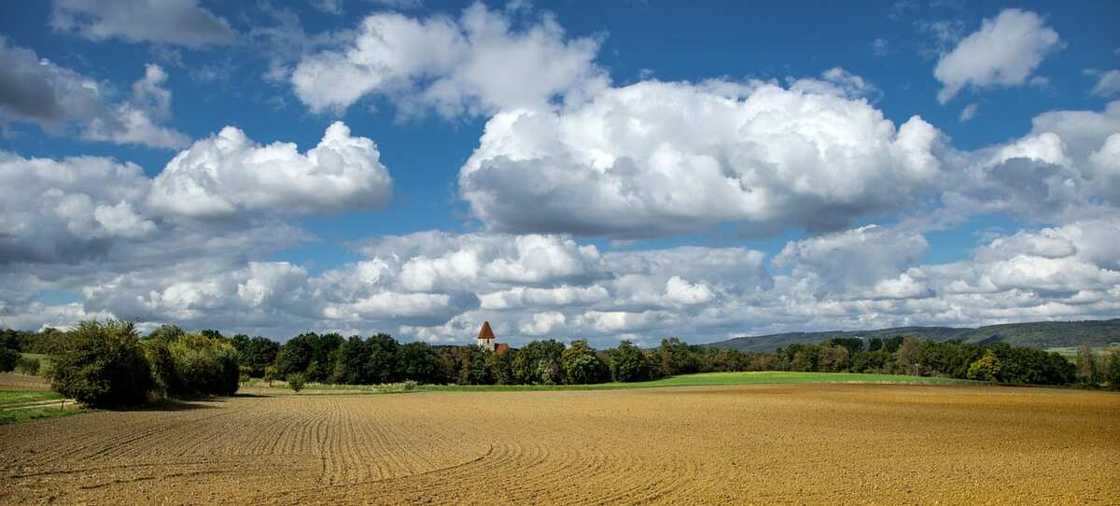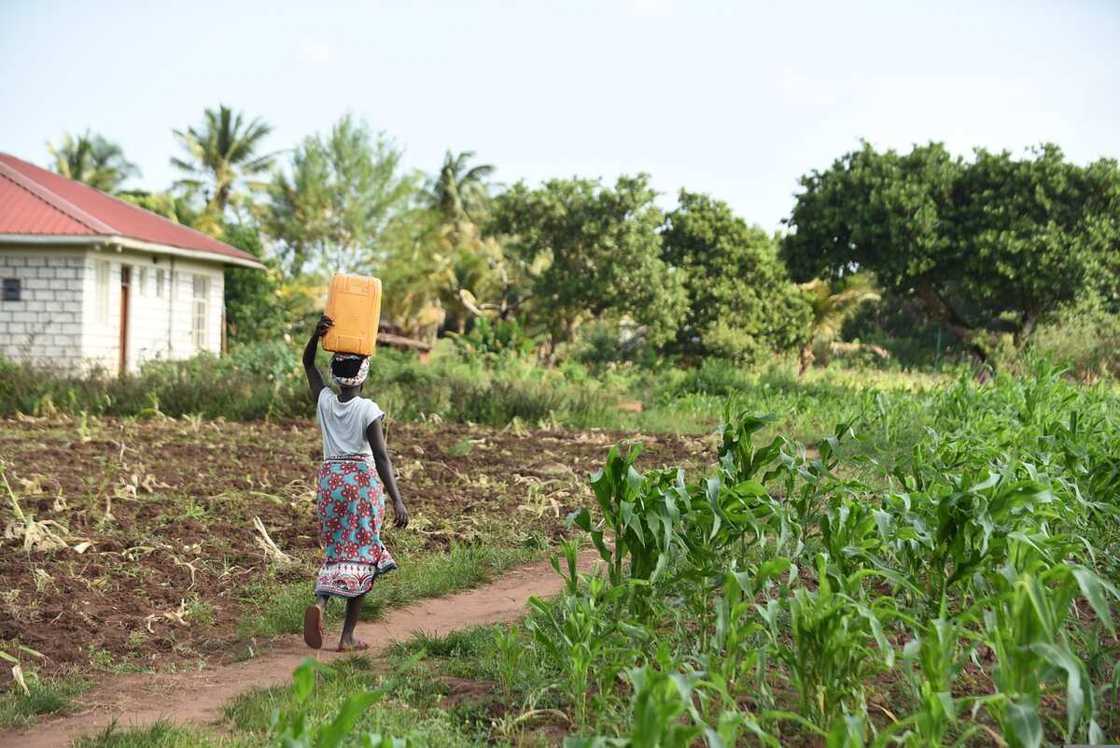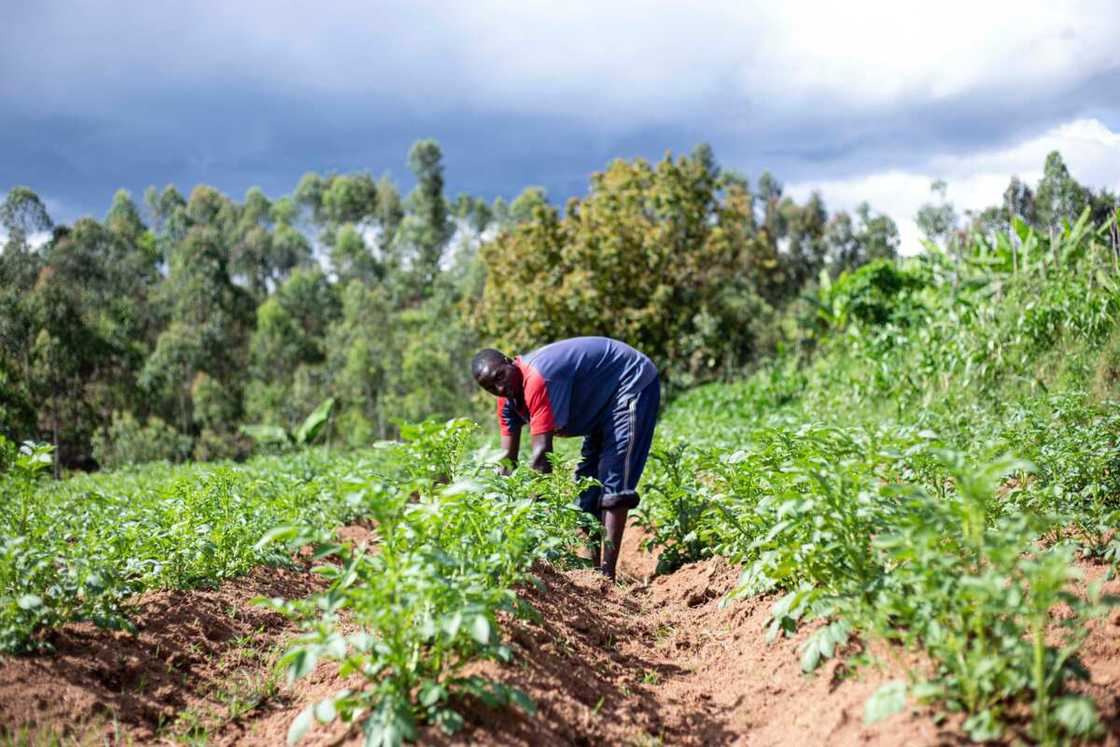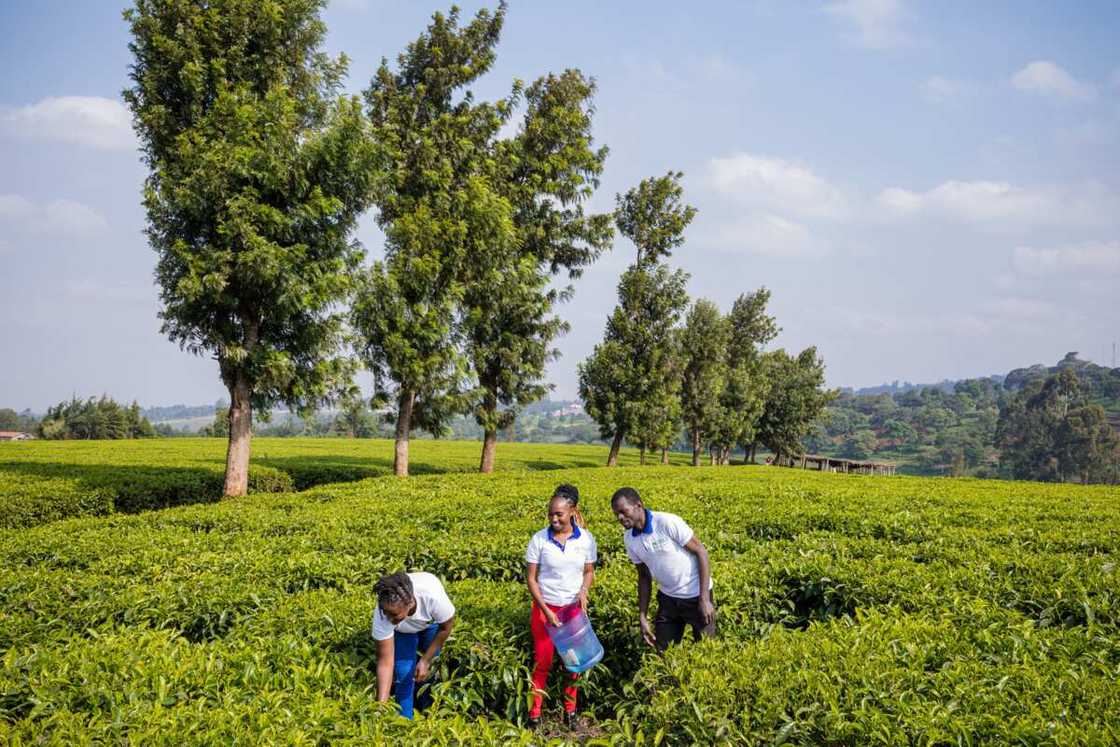The land tenure system in Nigeria is the basis on which land ownership is given to natural entities, corporations, legal entities, and individuals. The tenure system also determines the control and usage rights enjoyed by the said bodies. The various types of land tenure systems in modern-day Nigeria are structured to safeguard public objectives and the sustainability of human and other natural habitats. Dr. Gbenga Oladehinde, Head of the Urban and Regional Planning Department at Adekunle Ajasin University, provides a comprehensive understanding of the advantages and challenges of various land tenure systems in Nigeria, the role of traditional institutions and local governments, and ongoing reforms affecting land ownership.

Source: UGC
TABLE OF CONTENTS
What is the land tenure system in Nigeria? Like in other countries, Nigeria has varying types of tenure. These vary in the type of ownership, control, usage, and transfer rights. Each system dictates the landowners' privileges and obligations in reference to their parcel of land.
What are the advantages and disadvantages of each land tenure system in Nigeria?
Dr. Gbenga Oladehinde, Head of the Urban and Regional Planning Department at Adekunle Ajasin University, explained in an interview that the land tenure system in Nigeria is divided into two categories, which are the customary land tenure and statutory land tenure, which both come with their strengths and weaknesses. Dr Oladehinde explained:
Customary land tenure system
Advantages
- Cultural relevance: Customary tenure systems are deeply embedded in local communities' cultural practices and beliefs, providing a solid sense of identity and connection to the land.
- Access and equity: These systems often promote equitable access to land resources among community members, allowing for communal use and collective decision-making.
- Flexibility: Customary tenures can be adaptable to changing community needs, making it easier to manage land resources sustainably and respond to local circumstances.
- Dispute resolution: Traditional mechanisms for conflict resolution tend to be quicker and less formal than legal systems, allowing for timely dispute resolution through community involvement.
- Preservation of local knowledge: Customary systems often incorporate traditional ecological knowledge, facilitating sustainable land management practices that are attuned to local environmental conditions.
- Low administrative costs: Because they typically rely on informal processes and community structures, customary land tenure systems can have lower administrative and transactional expenses than formal systems.
Disadvantages
- Lack of formal recognition: Customary land rights may not be recognized legally, leading to tenure insecurity and making it difficult for individuals to prove ownership in disputes or transactions.
- Obstacles to agricultural investment: The absence of formal titles can hinder access to credit and investments since lenders often require proof of ownership before granting loans.
- Risk of conflict: Disputes over land ownership can arise, mainly when unclear boundaries or new external claims occur, leading to conflicts within and between communities.
- Gender inequities: Customary systems can perpetuate gender inequalities, as women may have limited or no rights to land ownership and access, depending on traditional norms within specific communities.
- Influence of local power dynamics: Local power dynamics can compromise the effectiveness of land management. Influential individuals or families may dominate land allocation decisions, marginalizing less powerful community members.
- Challenges with urbanization: As communities urbanize, customary land tenure systems may struggle to adapt to new pressures, leading to conflicts between customary practices and statutory requirements, especially regarding land use and zoning.
Statutory land tenure system
Advantages
- Legal recognition: Statutory tenure provides formal legal recognition of land ownership, making it easier for individuals and entities to prove their rights and negotiate transactions.
- Clear ownership rights: The system establishes clear definitions of ownership and usage rights, which can reduce disputes and enhance landholders' tenure security.
- Access to credit and investment: With formal land titles, landowners can secure loans and attract investments, as financial institutions often require proof of ownership as collateral.
- Regulation and planning: Statutory systems allow for comprehensive land use planning and zoning, facilitating organized urban development and efficient land resource management.
- Standardization: The statutory system promotes standardized procedures for land transactions, registration, and dispute resolution, contributing to greater transparency and efficiency.
- Protection against arbitrary claims: Legal frameworks can protect landowners from arbitrary claims and encroachments by the state or powerful individuals, ensuring greater security and stability.
Disadvantages
- Complexity and bureaucracy: The statutory process can be complex and bureaucratic, often resulting in delays, high transaction costs, and inefficiencies in land acquisition and registration.
- Limited accessibility: Many rural communities may lack access to the formal land registration system, which results in an underrepresentation of customary landholders and increased land insecurity.
- Conflicts with customary systems: Statutory laws can conflict with traditional land tenure practices, leading to disputes and tensions between customary land users and government authorities.
- Costs of formalization: The costs associated with legally documenting land tenure, such as registration fees, surveys, and legal services, can be prohibitive for low-income landholders.
- Potential for corruption: Elements of the statutory system may be susceptible to corruption, with individuals potentially using their influence to manipulate land allocation or registration processes.
- Inflexibility: Statutory regulations may be rigid and slow to adapt to local contexts or changes in community needs, leading to challenges in implementing new practices or accommodating diverse land use systems.
Dr. Oladehinde also mentioned that the land tenure systems in Nigeria could also be classified based on landholding, namely – private, public, and communal landholding. He explains:
- Private landholding: Under this system, land is held in the community's custody through families and individuals. The family or individuals have recognized rights to ownership, use, transfer, and control over land. Private landholding can be classified into three types: family landholding, individual landholding, and customary land tenancy.
- Public landholding: Under this landholding, land is owned, controlled, and managed by the government for the public interest. The land is often administered by the government. The Land Use Act in Nigeria empowers the government to hold land for the public interest.
- Communal landholding: Under this landholding, land ownership whereby the land belongs to the entire community. Every community member has the right to use the land for agriculture but cannot sell any portion. The head of the community decides how the land will be divided among members for farming purposes.
Have any recent reforms or changes in land tenure policies in Nigeria that have affected land ownership?
Dr. Oladehinde said there are only two principal legal frameworks for land ownership in Nigeria: Land Tenure Law No. 25 of Northern Nigeria, 1962, and Land Use Decree No. 6 of 1978 (now Land Use Act Cap 202 LFN 2004).
How do land tenure systems affect land disputes and resolution mechanisms in Nigeria?
According to Dr. Oladehinde, Nigeria's land tenure systems significantly influence land disputes and the mechanisms used to resolve them. He said this is due to the dual existence of customary and statutory tenure systems. The expert further explained the impact of these systems on land disputes and resolution mechanisms:
Influence of land tenure systems on land disputes
- Ambiguity and uncertainty: Customary systems often lack formal documentation, leading to land ownership and usage rights ambiguity. This lack of clarity can result in disputes, particularly when different parties claim rights over the same land. Statutory systems, on the other hand, provide formal legal recognition of land rights. However, ambiguities can still arise, especially when statutory laws conflict with existing customary rights.
- Conflicts between tenure systems: The coexistence of statutory and customary land tenure systems can create tensions. For example, statutory laws asserting government control over land may undermine customary land claims, leading to disputes between the state and local communities. When land is transitioned from customary to statutory ownership without adequate stakeholder engagement, it often results in conflict.
- Social and economic pressures: Competition for land, especially in densely populated or economically valuable areas, can escalate disputes. Urbanization, agricultural expansion, and resource scarcity exacerbate these tensions. Historical grievances related to land rights—often rooted in ethnic or colonial histories—can also trigger disputes, particularly in multi-ethnic regions.
- Gender inequities: In many customary systems, women often have limited rights to inherit or own land, leading to disputes when contesting practices that violate their rights or seeking access to land independently.
- Urbanization pressures: Rapid urbanization often results in conflicts over land between traditional land users and developers seeking to convert land for commercial purposes. Unclear land tenure rights in urban areas exacerbate this.
Impact on dispute resolution mechanisms
- Informal resolution mechanisms: Under customary systems, disputes are often resolved through community-based mechanisms involving local leaders or councils. These informal processes can be faster and culturally accepted but may lack legal enforceability and transparency. Many communities prefer these approaches due to their roots in tradition, which can enhance social cohesion.
- Formal judicial mechanisms: Under statutory systems, land disputes can be handled through formal legal channels, such as courts and tribunals. While this provides a structured dispute resolution process, it can be slow, expensive, and bureaucratic. The complexity of statutory laws may disadvantage those unfamiliar with legal processes, particularly in rural areas.
- Mediation and negotiation: Mediation practices, often facilitated by community elders or respected figures, are common in customary and statutory contexts. These efforts can promote dialogue and reconciliation but may reinforce existing power dynamics, leading to uneven resolutions.
- Corruption and inequality: Corruption within the formal legal system can skew outcomes, with influential individuals using their influence to manipulate favorably for themselves. This undermines trust in statutory mechanisms and may drive affected individuals back to informal dispute resolution.
- Integration of systems: Harmonizing statutory and customary systems can lead to more effective dispute resolution mechanisms. Hybrid approaches can accommodate local customs within the framework of statutory law, potentially providing a more balanced resolution pathway.
- Reinforcement of existing power dynamics: Customary and statutory dispute mechanisms can unintentionally reinforce existing power dynamics within communities, where influential figures may dominate negotiations or dispute resolutions.
What role do traditional institutions and local governments play in managing and regulating land tenure systems?
Dr. Oladehinde emphasizes that traditional institutions and local governments are crucial in managing and regulating land tenure systems, particularly in many developing countries. He mentioned:
Role of traditional institutions
- Custodians of customary law: Traditional leaders interpret and enforce customary land laws within their communities. They maintain the heritage and practices surrounding land ownership and usage.
- Dispute resolution: Traditional institutions often mediate land disputes using culturally accepted practices. Their involvement can lead to faster and less formal resolutions than the judicial system, fostering community harmony.
- Land allocation and management: They manage communal land use, ensuring fair allocation among community members according to traditional norms. This helps prevent conflicts and promotes equitable access to land resources.
- Cultural preservation: Traditional leaders emphasize land's cultural and ancestral significance, ensuring land management aligns with community values and beliefs.
- Local governance: They may act as part of local governance structures, influencing land tenure and usage policies and considering local customs and needs.
Role of local governments
- Implementation of national policies: Local governments execute national land policies at the grassroots level, adapting them to local contexts and ensuring they align with community needs.
- Land administration: They are responsible for maintaining land registries and records, facilitating formal land transactions, and helping to clarify land ownership, which can reduce disputes.
- Community engagement and education: Local governments raise awareness about land rights and tenure issues, educating residents about their rights and the available legal frameworks for land management and dispute resolution.
- Regulation and zoning: They create zoning laws and regulations that dictate land use, which helps manage urban and rural development while balancing the needs of various stakeholders.
- Support for traditional institutions: Local governments often collaborate with traditional leaders to improve land governance, recognizing the authority and knowledge of traditional institutions in local land matters.
The different types of land tenure systems in Nigeria
Here is a look at the different examples of land tenure systems in Nigeria today.
1. Communal tenure

Source: UGC
The communal tenure system refers to an arrangement in which a group of people holds the secure and exclusive collective rights to own, manage, or use land and its natural resources. These resources are known as common pool resources and often include agricultural spaces, grazing lands, forests, trees, fisheries, wetlands, or the use of irrigation water.
The community's leadership determines the structures, basis, and processes of owning and dividing such areas. This tenure system is quite common in areas whose residents practice large-scale farming.
2. Leasehold tenure
A leasehold is a temporary right to hold land in which a lessee or a tenant holds rights to the area by some form of title from a lessor or landlord. The payment for the lease is typically made to the current authority overseeing the land. Typically, such authorities might include the government, an individual with freehold tenure, or trust that governs the issues surrounding the area.
The government often grants a 999-year leasehold for agricultural land, a 99-year leasehold for urban plots, and about 33 years for urban trust territories. This is one of the most common types of land tenure systems in agriculture.
3. Gift tenure
The gift system is premised on the voluntary transfer of ownership rights from one owner to another. The new proprietor (the gift recipient) can use the piece of land as collateral for a loan. They are also entitled to all the advantages of land ownership.
This tenure system is subject to legal verification. A court of law could reverse the gifting of the land if the rules of the country were broken in the process.
4. Freehold tenure

Source: UGC
Freehold tenure is a type of land ownership where a person or organization has outright ownership, forever, of a piece of land. This is the most common land tenure system in Nigeria. The owner is given a title deed to prove his ownership, usage, and control rights over the land. A freehold property can be transferred between entities through a sale and subsequent transfer.
5. Inheritance tenure
The inheritance tenure comes into effect once the ownership rights are transferred to a successor following the primary owner's demise. The primary owner's next of kin (usually the children) assumes the role of new landowners under this system. Such land is then known as inheritance property. Under some customary laws, such land can never be put up for sale.
Characteristics of the Nigerian land tenure system
The Nigerian tenure system consists of the following elements.
- Usage rights: One's tenure system dictates how one can use their land. Common usage instances include building commercial structures, residential structures, growing crops, grazing, and benefitting from forestry resources.
- Control rights: These are the owner's rights to make decisions pertaining to the use of the land, partitioning, and minor developments. This is the reason one person can decide to plant bananas while their immediate neighbour plants coffee.
- Transfer rights: The system also gives the owner the ability to decide who to gift, allow usage, sell, mortgage, or convey the land to.
Advantages and disadvantages of the land tenure system in Nigeria

Source: UGC
Here are the pros and cons of the current Nigerian tenure system.
Pros
- It is a reliable system for governing the legal relationship between communities, individuals, and various entities on matters of use, control, and transfer.
- The current system makes it possible for anyone to own property regardless of their background.
- It is supported by numerous decrees that govern virtually every aspect touching on land.
Cons
- Most elements of the tenure system are premised on culture and traditions, creating loopholes that often result in conflict between individuals and groups with opposing beliefs.
- The freehold and leasehold systems can be easily exploited by a corrupt government.
There are various types of land tenure systems in Nigeria. These all give the owner varying rights when it comes to use, control, and transfer. The current system is the primary basis upon which land ownership in Nigeria is determined.
DISCLAIMER: This article is intended for general informational purposes only and does not address individual circumstances. It is not a substitute for professional advice or help and should not be relied on to make decisions of any kind. Any action you take upon the information presented in this article is strictly at your own risk and responsibility!
READ ALSO: Vegetation zones in Nigeria and their features: All the details
Legit.ng recently published an article about the various vegetation zones in Nigeria. The country has various zones, all determined by the wide-ranging climatic conditions. These zones have varying annual rainfall, temperature, atmospheric pressure, and predominant vegetation. Some of the zones are significantly larger than others, with some being more human-friendly than others.
The vegetation belt in Nigeria is divided into two: the forest and savannah ecological zones. These zones are further subdivided into three each, for a total of six vegetation zones.
Source: Legit.ng
Authors:

Jackline Wangare (Lifestyle writer) Jackline Simwa is a content writer at Legit.ng, where she has worked since mid-2021. She tackles diverse topics, including finance, entertainment, sports, and lifestyle. Previously, she worked at The Campanile by Kenyatta University. She has more than five years in writing. Jackline graduated with a Bachelor’s degree in Economics (2019) and a Diploma in Marketing (2015) from Kenyatta University. In 2023, Jackline finished the AFP course on Digital Investigation Techniques and Google News Initiative course in 2024. Email: simwajackie2022@gmail.com.

Adrianna Simwa (Lifestyle writer) Adrianna Simwa is a content writer at Legit.ng where she has worked since mid-2022. She has written for many periodicals on a variety of subjects, including news, celebrities, and lifestyle, for more than three years. She has worked for The Hoth, The Standard Group and Triple P Media. Adrianna graduated from Nairobi University with a Bachelor of Fine Arts (BFA) in 2020. In 2023, Simwa finished the AFP course on Digital Investigation Techniques. You can reach her through her email: adriannasimwa@gmail.com















 English (US) ·
English (US) ·